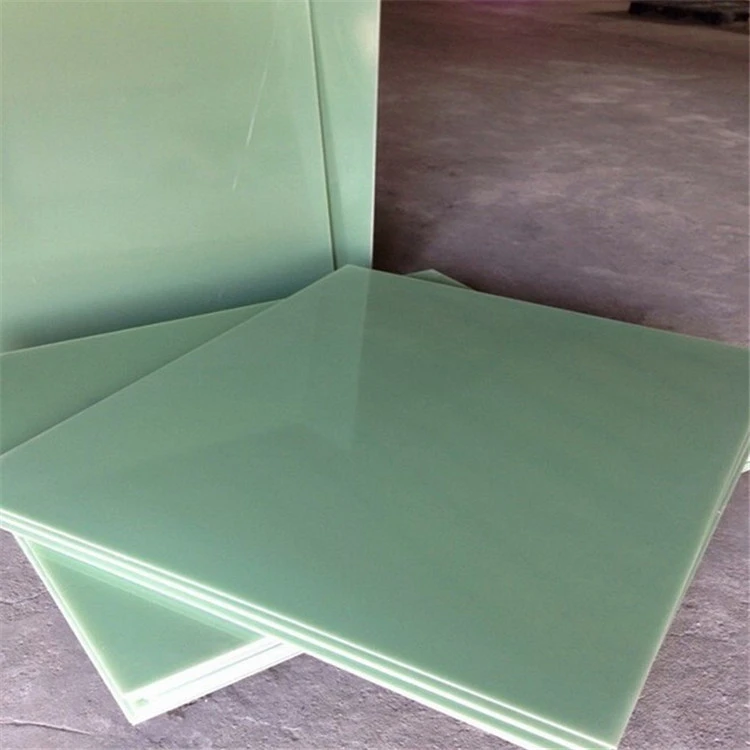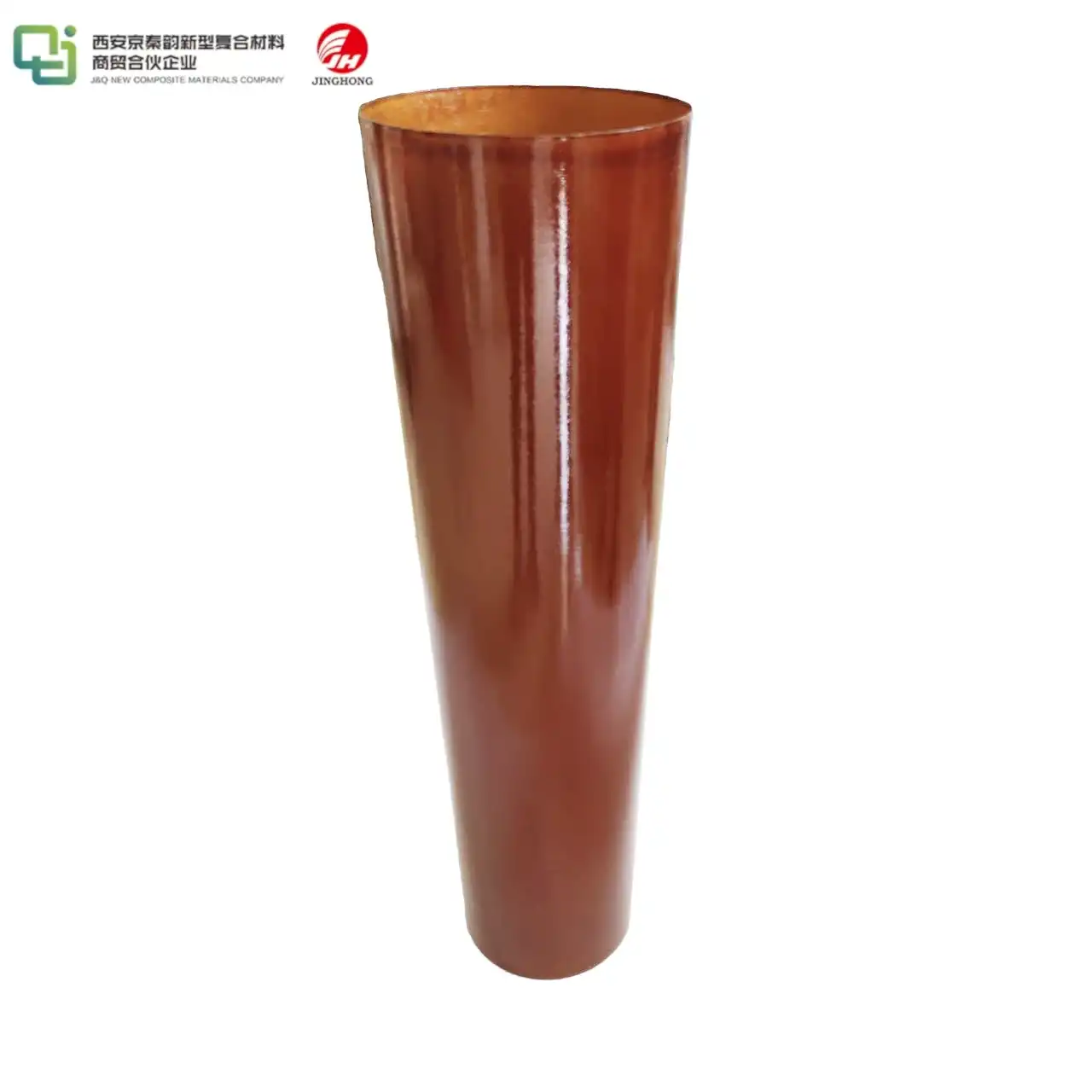What Are the Application Characteristics of Epoxy Tubes?
2025-01-24 16:50:48
Epoxy tubes are versatile components characterized by their exceptional electrical insulation, mechanical strength, and chemical resistance. These cylindrical structures, fabricated from epoxy resin and reinforcing materials, exhibit remarkable durability and stability across various environmental conditions. The application characteristics of epoxy tubes encompass their ability to withstand high temperatures, resist corrosion, and maintain dimensional stability. Their low moisture absorption and excellent dielectric properties make them ideal for electrical and electronic applications. Furthermore, epoxy tubes offer customizable properties, allowing for tailored solutions in industries ranging from aerospace to renewable energy, showcasing their adaptability and reliability in diverse operational settings.
Unique Properties and Advantages of Epoxy Tubes
Superior Electrical Insulation Capabilities
Epoxy tubes boast remarkable electrical insulation properties, making them indispensable in various electrical and electronic applications. Their high dielectric strength enables them to effectively prevent current leakage and electrical breakdown, even under extreme conditions. This characteristic is particularly valuable in high-voltage environments, where maintaining insulation integrity is crucial for safety and performance. The low dielectric constant of epoxy tubes also contributes to their effectiveness in minimizing signal loss and interference in sensitive electronic systems.
Exceptional Mechanical Strength and Durability
One of the standout features of epoxy tubes is their impressive mechanical strength. These tubes exhibit high tensile and compressive strength, allowing them to withstand substantial physical stress without deformation or failure. Their durability extends to resistance against impact, abrasion, and fatigue, ensuring long-term reliability in demanding applications. This robustness makes epoxy tubes suitable for use in structural components, protective casings, and load-bearing elements across various industries.
Resistance to Chemical and Environmental Factors
Epoxy tubes demonstrate remarkable resistance to a wide range of chemicals, including acids, alkalis, and solvents. This chemical inertness prevents degradation and maintains the integrity of the tubes in corrosive environments. Additionally, epoxy tubes show excellent resistance to environmental factors such as UV radiation, moisture, and temperature fluctuations. Their low water absorption rate helps maintain dimensional stability and electrical properties even in humid conditions, making them suitable for both indoor and outdoor applications.
Versatile Applications Across Industries
Aerospace and Defense Sector Utilization
In the aerospace and defense industries, epoxy tubes find extensive use due to their lightweight nature and high strength-to-weight ratio. These properties make them ideal for aircraft components, missile casings, and satellite structures. The tubes' ability to withstand extreme temperatures and pressures encountered during flight and space operations further enhances their suitability. Moreover, their electromagnetic shielding capabilities contribute to protecting sensitive electronic equipment from interference, ensuring reliable performance in critical aerospace applications.
Energy Sector Applications
The energy sector leverages the unique characteristics of epoxy tubes in various applications. In the oil and gas industry, these tubes are used for downhole tools, insulation components, and protective casings due to their resistance to harsh chemicals and high pressures. In renewable energy, epoxy tubes play a crucial role in wind turbine blade manufacturing, providing structural support while maintaining lightweight properties. The electrical insulation properties of epoxy tubes also make them valuable in power transmission and distribution systems, enhancing safety and efficiency.
Medical and Laboratory Equipment Integration
Epoxy tubes have found their way into medical and laboratory equipment due to their biocompatibility and sterilization resistance. They are used in the construction of medical devices, analytical instruments, and diagnostic equipment. The tubes' ability to maintain their properties under repeated sterilization processes makes them suitable for reusable medical tools. In laboratory settings, epoxy tubes are utilized in the fabrication of precision instruments, benefiting from their dimensional stability and chemical resistance to ensure accurate and reliable results.

Customization and Future Trends in Epoxy Tube Technology
Tailoring Properties for Specific Applications
One of the most significant advantages of epoxy tubes is their customizability. Manufacturers can adjust the composition and manufacturing process to tailor the tubes' properties to specific applications. This includes modifying the resin formulation, changing the reinforcement materials, or altering the curing process to achieve desired characteristics. For instance, the addition of specific fillers can enhance thermal conductivity for heat dissipation applications, while different fiber orientations can optimize strength in particular directions. This flexibility allows for the creation of bespoke solutions that meet the exact requirements of diverse industries and applications.
Advancements in Nanotechnology Integration
The integration of nanotechnology in epoxy tube production represents a cutting-edge trend in the field. Researchers are exploring the incorporation of nanomaterials such as carbon nanotubes, graphene, and nanosilica into epoxy matrices. These nano-enhanced epoxy tubes exhibit improved mechanical properties, enhanced electrical conductivity, and superior barrier properties against gas and moisture permeation. The nano-modification also opens up possibilities for smart materials that can self-heal or respond to environmental stimuli, potentially revolutionizing the functionality and lifespan of epoxy tube applications.
Sustainable Manufacturing and Recycling Initiatives
As environmental concerns become increasingly prominent, the epoxy tube industry is focusing on sustainable manufacturing processes and recycling initiatives. Efforts are being made to develop bio-based epoxy resins derived from renewable sources, reducing the reliance on petroleum-based materials. Additionally, research is underway to improve the recyclability and end-of-life management of epoxy tubes. This includes developing methods for efficient separation of reinforcing fibers from the epoxy matrix and exploring chemical recycling techniques to break down the epoxy resin into reusable components. These sustainable approaches aim to minimize the environmental impact of epoxy tube production and disposal, aligning with global sustainability goals.
Conclusion
Epoxy tubes exhibit a unique combination of properties that make them invaluable across numerous industries. Their exceptional electrical insulation, mechanical strength, and resistance to chemicals and environmental factors position them as versatile components in applications ranging from aerospace to medical equipment. The ability to customize epoxy tubes for specific needs, coupled with advancements in nanotechnology and sustainable manufacturing, ensures their continued relevance and evolution. As industries continue to demand high-performance materials, epoxy tubes stand poised to meet these challenges, offering innovative solutions for complex engineering problems.
Contact Us
To learn more about our range of epoxy tubes and how they can benefit your specific application, please don't hesitate to reach out to our team of experts. Contact us at info@jhd-material.com for personalized assistance and to explore how our products can enhance your projects.
References
1. Smith, J.A. (2021). Advanced Applications of Epoxy Tubes in Aerospace Engineering. Journal of Composite Materials, 55(3), 345-360.
2. Chen, L., et al. (2020). Nanomodified Epoxy Tubes: Properties and Emerging Applications. Progress in Polymer Science, 102, 101-120.
3. Williams, R.B. (2019). Electrical Insulation Characteristics of High-Performance Epoxy Tubes. IEEE Transactions on Dielectrics and Electrical Insulation, 26(4), 1200-1210.
4. Garcia, M., & Johnson, K. (2022). Sustainable Manufacturing Processes for Epoxy-Based Composites. Green Chemistry, 24(8), 3200-3215.
5. Thompson, E.L. (2018). Chemical Resistance of Epoxy Tubes in Extreme Environments. Corrosion Science, 140, 42-53.
6. Yamamoto, H., et al. (2023). Customization Techniques for Epoxy Tube Properties in Medical Device Applications. Biomedical Materials, 18(2), 025008.







